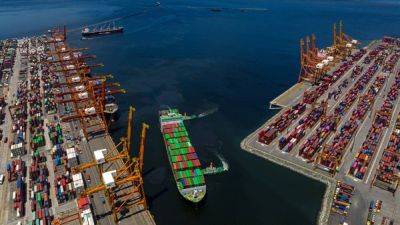Net FDI continues decline in October
NET foreign direct investments (FDI) fell for a third straight month in October, data from the Bangko Sentral ng Pilipinas showed on Wednesday.
At $655 million, the net tally was 29.6-percent down from the $930 million posted a year earlier.
This brought the cumulative total for January-October to 6.5 billion, 17.5 percent lower than the $7.9 billion recorded in the comparable 2022 period.
«While FDI continued to record net inflows, the recent decline in levels reflect the adverse impact of persistent inflationary pressures and slowing global growth prospects on investor decisions,» the central bank said in a statement.
In October alone, nonresidents' net investments in debt instruments plunged by 26.1 percent to $504 million from $682 million.
Net investments in equity capital also plummeted, by 54.4 percent to $74 million from $163 million and reinvestments of earnings dropped 10.3 percent to $76 million from $85 million.
Japan, the United States and Singapore accounted for the bulk of October FDI, which was mostly channeled to the manufacturing (54 percent), real estate (18 percent), and financial and insurance (15 percent) sectors.
From January to October, net equity capital placements declined by 22.9 percent to $1.019 billion from $1.321 billion a year earlier.
Reinvestments of earnings recorded a downtick to $945 million, down 6.4 percent from $1.01 billion, while net investments in debt instruments dropped 18.3 percent to $4.57 billion from $5.59 billion.
Equity capital placements for the first 10 months of 2023 originated mostly from Japan, Singapore, the United States and Germany.
Half or 50 percent went to manufacturing, followed by real estate (14 percent), financial and insurance (12 percent), and others (23 percent).
Sought for comment, Rizal Commercial Banking Corp. chief economist Michael Ricafort said that the deceleration in net FDIs was due to persistently elevated global and local interest rates.
The higher rates increased borrowing and funding costs and affected new investments, he added.
«Still relatively higher prices also partly slowed down new investments/FDIs,» Ricafort said.
«Other reform measures to ease foreign ownership limits would all







